New US policy: A blow to the Armenian lobby Unusual delegation in Yerevan
On January 30, several significant developments took place in Western policy regarding the South Caucasus. The most striking was the extension of the mandate for the EU’s quasi-military mission—despite its previous failures, European liberal elites continue to align themselves with Armenian revanchism.
Meanwhile, shifts are becoming evident in the United States. It is not just about the fact that one of the key allies of Armenian nationalists in the American Congress has been convicted of corruption. A delegation from a well-known American think tank visited Yerevan. Of course, much remains ambiguous, but it is clear that Baku is working to translate its military victories into political transformations in the region—and, unlike the EU’s indecisive politicians, the US is beginning to recognise this.
Carnegie Endowment: Azerbaijani or Armenian cognac?
On January 27, representatives of the American Carnegie Endowment visited Yerevan, where they met with Armenian Prime Minister Nikol Pashinyan. On the surface, nothing extraordinary—except that this think tank ranks among the top three most influential in the United States. Its current focus on normalisation in the South Caucasus is intriguing in itself.
However, the Endowment did not just send former Soviet intelligence officer Eugene Rumer, whose background—like many in his field—includes working against Russia. Russian war correspondents expressed outrage, but Rumer himself is hardly a standout figure. What’s more interesting is that the delegation included two other members whose very names provoke outrage among Armenian nationalists. And yet, Pashinyan eagerly discussed with them the “peace process, border delimitation, the prospects for unblocking regional communications, the so-called ‘Crossroads of Peace’ project, and the normalisation of Armenian-Turkish relations.”
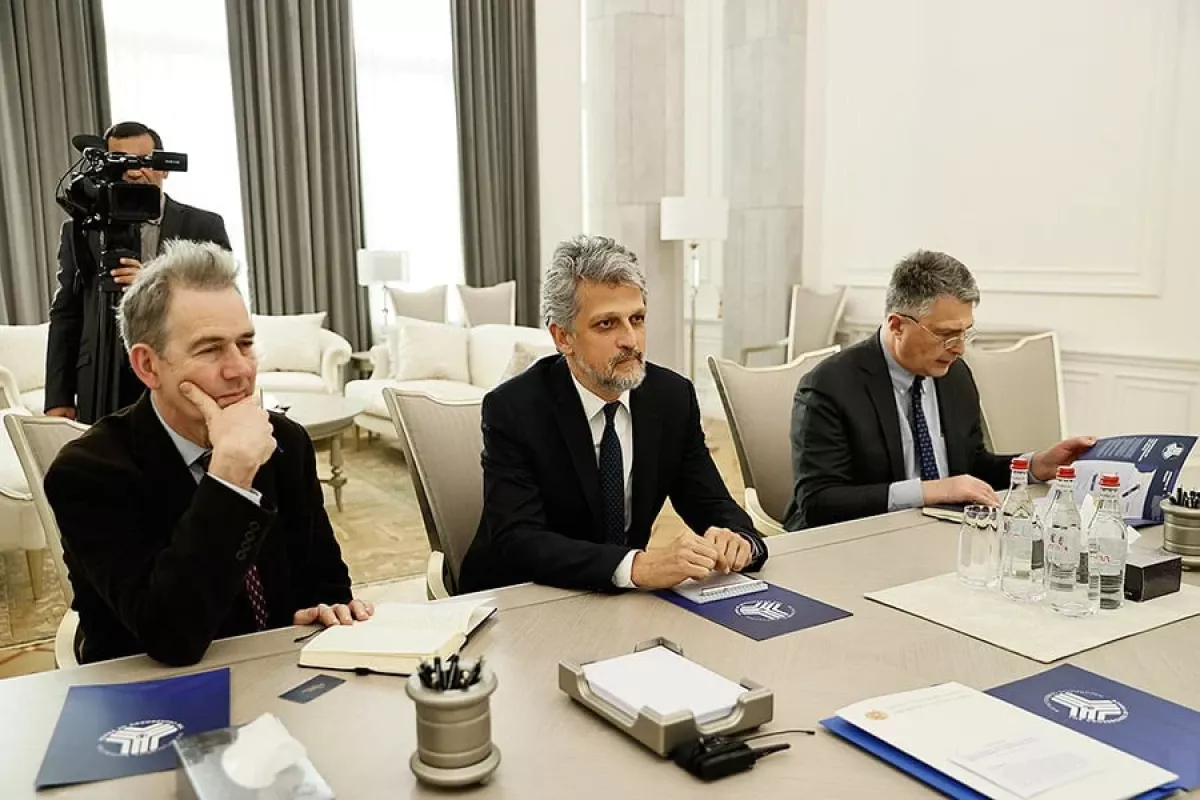
The figures in question are Thomas de Waal and Garo Paylan. The grievances of Armenian revanchists against the former are well known. This prominent British journalist, who has written extensively about the Caucasus and particularly Azerbaijan, has been accused by separatist leaders of engaging in “Azerbaijani propaganda” and “intimidating Armenians.” Other Armenian nationalists have claimed that he allegedly “downplays” the scale of the bloody events of the early 20th century.
Garo Paylan, though less familiar to the public outside the Armenian context, is no less notable than Thomas de Waal. This Turkish-Armenian politician was, for many years, a member of the Turkish parliament.
A visit of desperation to Washington
The concerns of Armenian nationalists are understandable—despite their opposition to his views, Yerevan’s leadership continues to engage with Paylan, using him as a conduit to the West, particularly the United States. Judging by his public interactions and statements, he does indeed have access to the global liberal establishment.
But is Pashinyan’s calculation correct? After all, the new American president, Trump, has numerous grievances against the liberal elites of the “collective West.” While this is true, any real confrontation between Trump’s team and the liberals in the U.S.—let alone across the entire collective West—seems unlikely, even in the foreseeable future. This is due to the liberals’ complete and unconditional capitulation, their moral disarmament in the face of the new White House leader. As the BBC noted with disappointment last week, the world’s liberal elites, gathered at the World Economic Forum in Davos, merely nodded approvingly while listening to Trump’s “ultimatum” delivered via video link.
Thus, the Carnegie Endowment’s work in the South Caucasus is not aimed at opposing Trump but rather at drawing his attention through certain policy initiatives. Notably, just before Trump’s inauguration and his trip to Yerevan, Garo Paylan published an article in the influential right-liberal Wall Street Journal, urging Trump to seize a “golden opportunity” to contribute to the Armenian-Azerbaijani settlement.
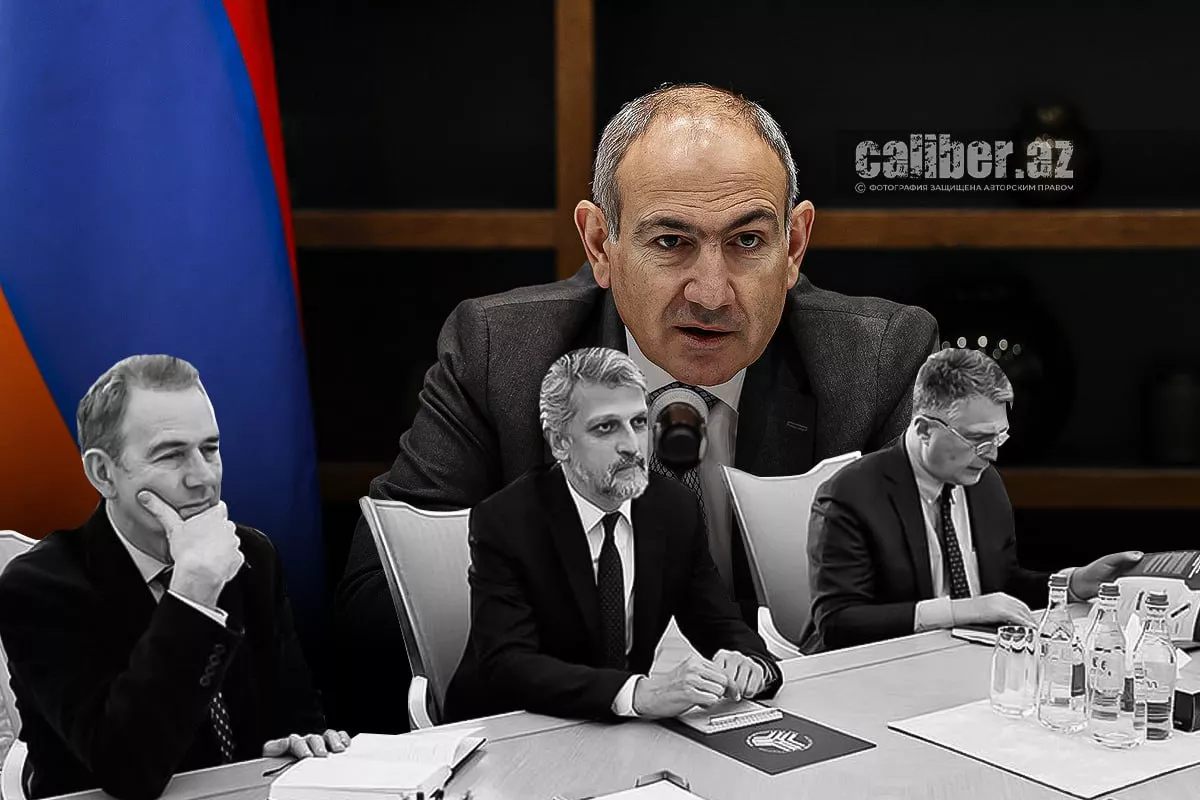
The current visit of Western experts carries another interesting context. Just on January 30, former U.S. Senator Robert Menendez was sentenced to prison for bribery and corruption. Officially, he is accused of illegal lobbying on behalf of Egypt and Qatar, but the senator, notorious for his extraordinary greed, is also well-known for his relentless promotion of Armenian nationalist interests since the 1990s. During a search of Menendez's home, unexplained piles of cash and gold bars were discovered, but he insists that the case against him is "political." In a sense, he is correct—the blow to the corrupt external influence schemes on U.S. politics, in which he made a significant contribution, is closely tied to changes in U.S. policy. This blow was especially hard for the Armenian lobby, which now has fewer resources to diversify its influence and prepare a replacement for Menendez.
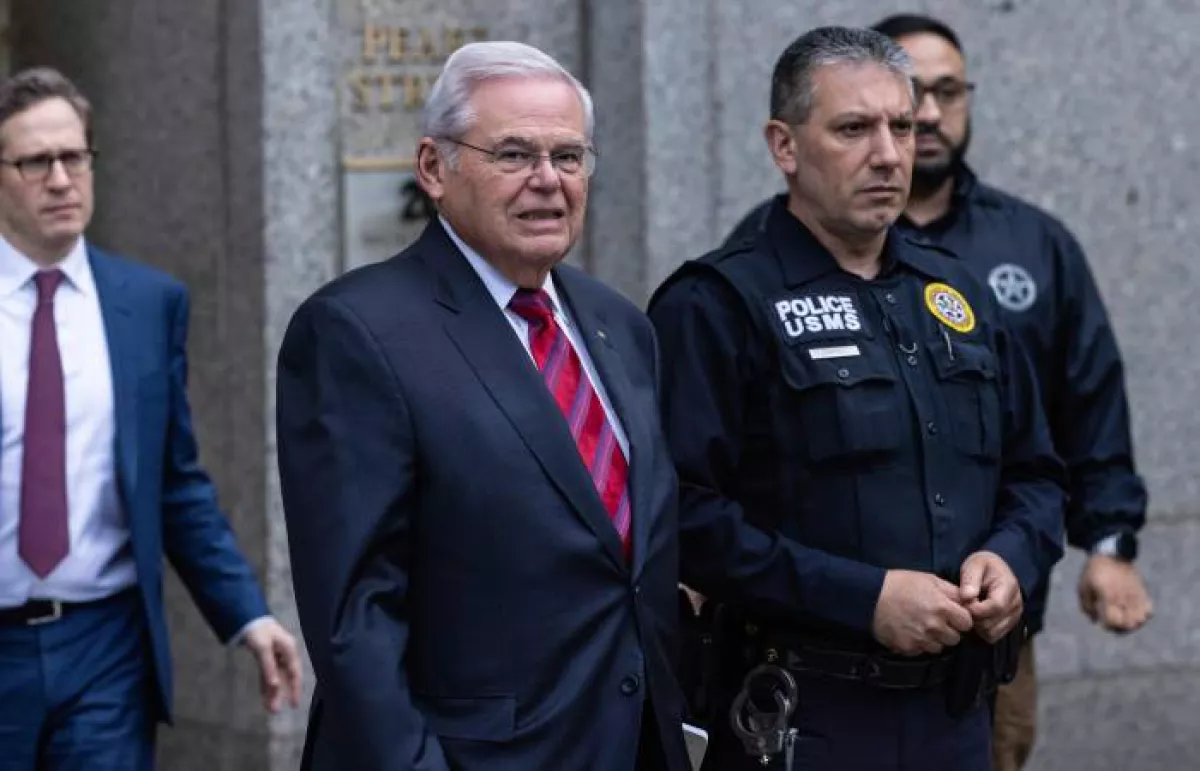
Pashinyan would likely not turn down the help of a new Menendez right now. After all, the government of Armenia, which has repeatedly emphasized its pro-Western and pro-American orientation, is already facing issues in its relations with the United States. On January 31, during a press conference, the Armenian Prime Minister revealed that in early February, he would be traveling to Washington for the highly important V Annual International Religious Freedom Summit and even the National Prayer Breakfast. However, there's a catch: “A meeting with the U.S. president is not scheduled. At the moment, there is no such item on our agenda, but this is a very important visit. We consulted with colleagues and concluded that we absolutely need to go and participate.” In diplomatic terms, this means: “We planned to confront Trump with our visit and hoped to meet him (even though we usually aligned with his staunchest enemies). While our plan hasn’t worked out yet, we are putting everything on the line and going, hoping for the best.”
This is a visit of desperation for Pashinyan, who realizes that his European liberal partners won’t save him, and his ties with the U.S. have weakened after the defeat of his former American political allies in elections and the imprisonment of his main supporter of Armenian revanchism. It’s time to find new friends across the ocean—Yerevan’s elites don’t count much on their own strength in dealing with their neighbors (especially in the case of confrontation).
Pashinyan: How did the “Armenian genocide” agenda emerge after being absent?
The Yerevan establishment is looking for help, as it faces limited options—sabotaging the normalization process is becoming increasingly dangerous. Armenia’s military potential—despite provocative arms supplies from India and France—is unimpressive, and there are no signs of change in this area. Recently, Armenian social media enthusiastically shared photos from a grand reception held in Paris on the occasion of the 33rd (!) anniversary of the Armenian Armed Forces, attended by various high-ranking French officials and diaspora activists. However, this event appears almost cartoonish in the style of “balls, beauties, servants, cadets, and Schubert’s waltzes, and the crunch of French pastries.” The tragicomic effect intensifies when one recalls that this banquet took place against the backdrop of the Armenian military, which has been repeatedly defeated in recent years and reduced to a pitiful state. Incidentally, this condition shows no signs of improvement, with hopes pinned only on the introduction of foreign troops and other imports.
It was recently revealed that Armenia’s military-industrial complex budget for 2024 has been executed at only 25%. This situation has persisted for several years. In 2021, 3.1 billion drams ($77.4 million) were spent out of a planned 4.57 billion ($114 million), in 2023, only 1.1 billion drams ($27.4 million) out of 6.84 billion ($170 million), and for 2024, just 1.5 billion drams ($37.4 million) out of the projected 5.82 billion drams ($145.3 million) have been spent.
Given the circumstances, it’s not surprising that in Yerevan, not only are such delegations from the U.S. welcomed, but Armenian leaders are also starting to make interesting statements. During a meeting last week with representatives of the Armenian community in Switzerland, Prime Minister Pashinyan stunned them with the following words:
“We also need to return to the issue of the ‘Armenian genocide.’ Fine, we need to understand what happened, why it happened, and how we perceived it, through whom we perceived it. How is it that in 1939, the ‘genocide of the Armenians’ agenda didn’t exist, and how is it that in the 1950s, this agenda appeared? How did that happen? Should we understand this, or not? Should we engage with these topics or not? Are we managing our identity, or not?”
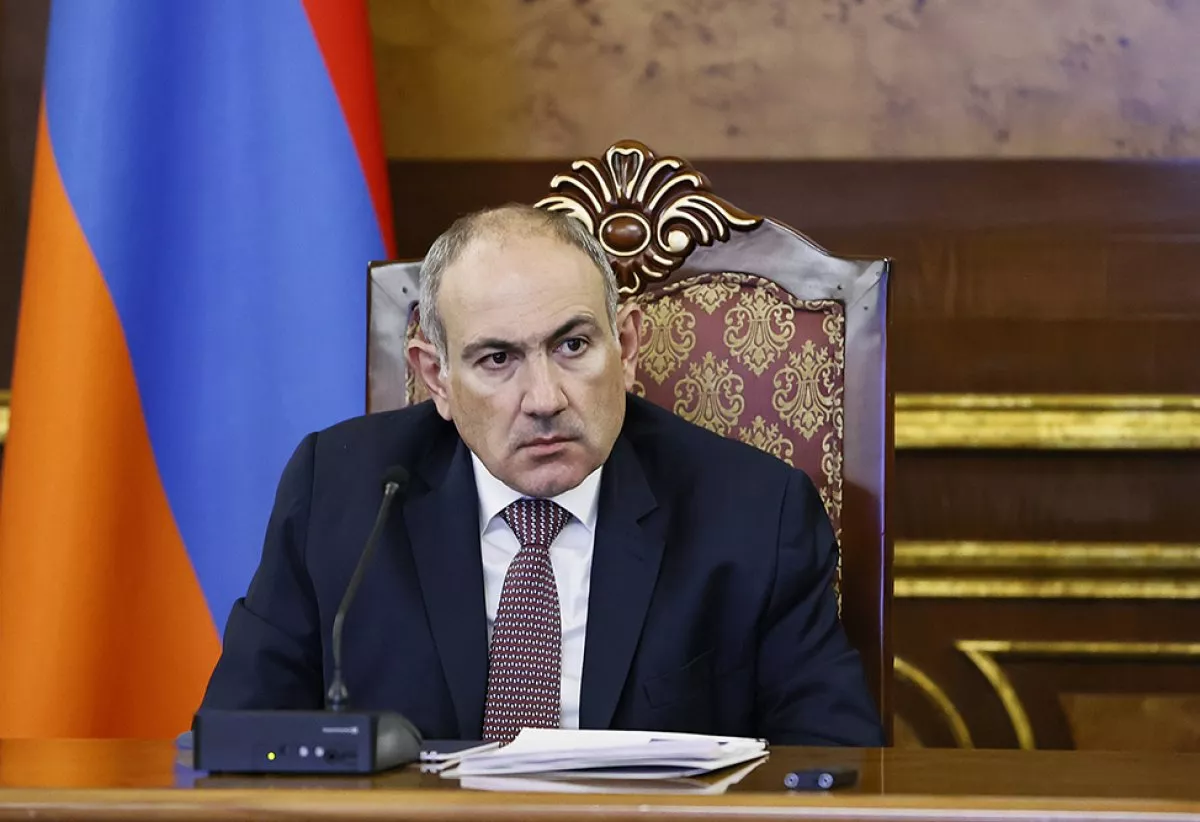
This, of course, did not sit well with Armenian activists, who prefer to distance themselves from the reality of Armenia. Pashinyan later continued his reflections: “Our identity is tied to the Republic of Armenia. I have no other identity. In the modern world, identities are connected to states.” Shortly after, he added something even more outrageous for the revanchists—calling on the government and society to set tasks for the Armenian military to protect and ensure the security of only the “internationally recognized territory of the country” and promising to amend Armenia’s National Security Strategy to reflect this.
Later on January 30, Foreign Minister Ararat Mirzoyan stated that Armenia supports the unlocking of transport infrastructure in the region: “The 21st century is an era of simplifications and the easing of logistical transitions, everyone is striving for simplification. We also see certain simplified procedures in Azerbaijan that could be applied, and both we and Azerbaijan will benefit from this.”
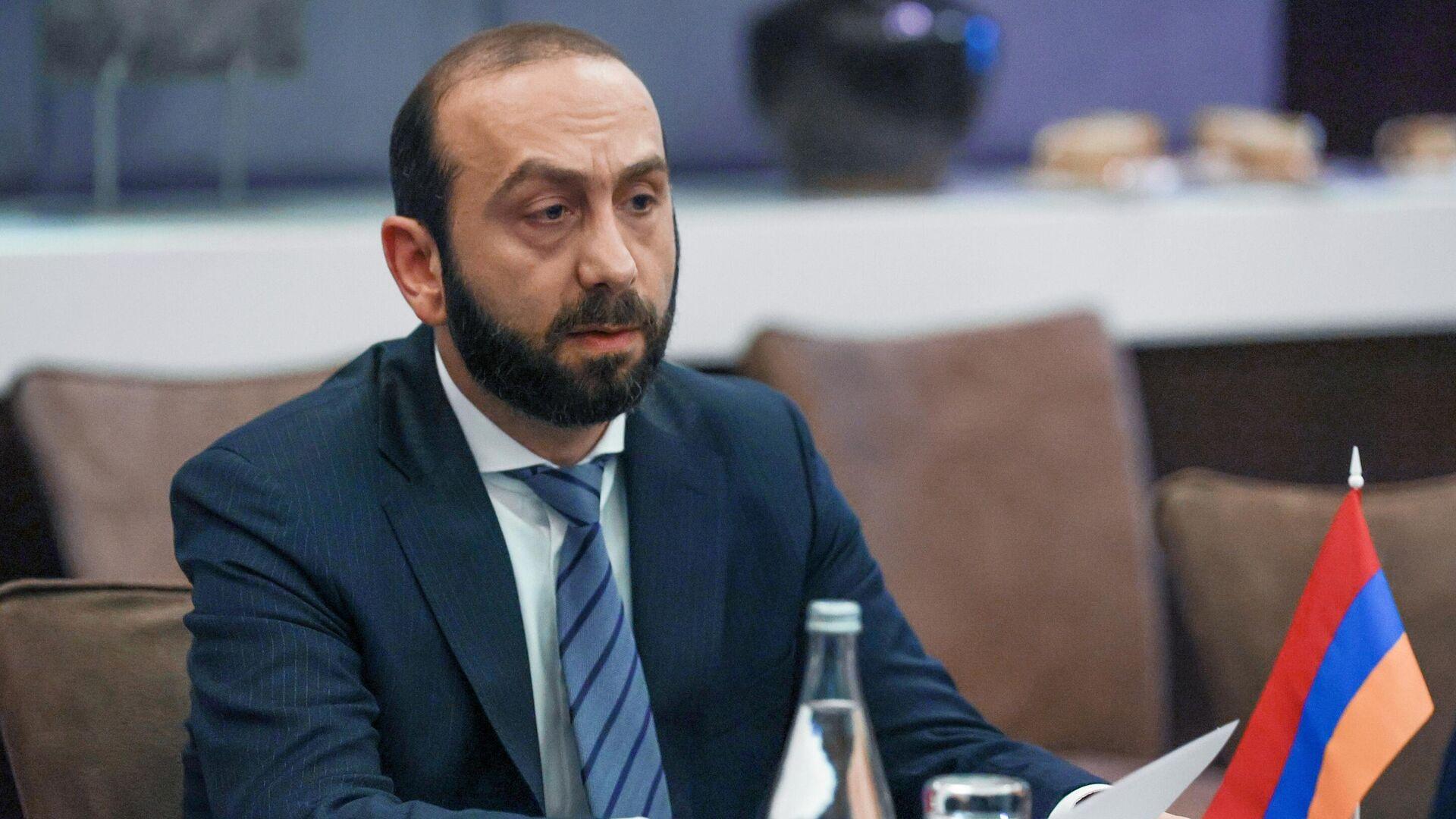
In these statements, revanchist elements saw Pashinyan's readiness to negotiate with neighboring countries—a sentiment that was met with outrage from both Armenian opposition figures and diaspora activists. Ruben Melkonian, a former dean of the Department of Oriental Studies at Yerevan State University, known for his Turkophobia, even claimed that Pashinyan’s team had effectively met a number of preliminary conditions formulated by Türkiye in the early 1990s for the normalization of relations with Yerevan. These included the cessation of efforts to secure international recognition of the “genocide,” the removal of Mount Ararat (Mount Ağrı) as a symbol, the recognition of the Kars Treaty, amendments to the Declaration of Independence, and more.
However, he conveniently overlooked that some of these changes likely occurred due to Azerbaijani influence. Moreover, he didn’t explain what was wrong with the changes for a real, existing Armenia and the Armenians actually living there. Nevertheless, for Eastern European nationalists, symbols have often mattered more than real, living compatriots and the actual state itself.
The revanchist backlash against Pashinyan, who was already not particularly firm in his views, had an effect. By January 30, he was already backtracking, claiming that he not only does not deny the "genocide" dogma, but also considers it "part of the identity" of Armenians. Overcoming the legacy of years of nationalist propaganda, chauvinism, and expansionism, under which the corrupt comprador regime in Yerevan had operated before Pashinyan’s arrival, is no easy task. However, the balance of power is shifting, as evidenced by both the actions of the Armenian leadership and the processes related to U.S. policy in the South Caucasus, and this shift is not in favor of the Armenian nationalist project born out of Gorbachev’s "Perestroika." It is moving toward the search for ways to recreate a historically unified South Caucasus, where all the peoples of the region can peacefully coexist and develop.








